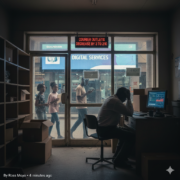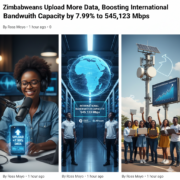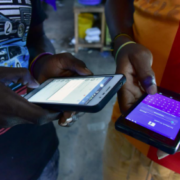The latest edition of the International Telecommunications Union (ITU) Measuring the Information Society Report, released during the World Telecommunication/ICT Indicators Symposium (WTIS‐17) in Tunisia last week, found that only Mauritius improved its ranking among African countries that made the top 100 in the ICT Development Index (IDI) accompanying the report.
The ITU says its IDI 2017 ranked the progress of 176 economies globally for their development, based on what it says is official and internationally comparable statistics.
Mauritius leads the pack in Africa having improved three places from last year to be at number 72, twenty places ahead of South Africa in 92nd position.
Cape Verde is third in Africa and 93 on the global list, while Tunisia and Morocco complete the number of African representatives in the top 100 at 99 and 100 respectively.
Brahima Sanou, Director of ITU’s Telecommunication Development Bureau, which produces the report, said, “Drawing conclusions from the report, it is clear that the area of ICT is very dynamic and that another digital revolution is approaching – one which will transform business, government and society. Four key developments are at the heart of this revolution: the Internet of Things (IoT), cloud computing, big data analytics, and Artificial Intelligence (AI). These are described in greater detail in the last chapter of the report.”
The average value for Africa in the IDI 2017 is 2.64 points. The ITU found that Gabon and Namibia achieved the most dynamic improvements in their IDI value over the year.
Dr Mohamed Anouar Maarouf, Minister of Communication Technologies and Digital Economy of the Republic of Tunisia says his country, which is lauded in the report for the potential of its participatory water management project to raise awareness and understanding of advanced ICTs, is pleased have to hosted WTIS-17.
“ICT statistics are key to a country’s development. In Tunisia, for example, we propose to strengthen training programmes on statistical indicators to better respond to the needs and expectations of developing countries.”
Sanou said he hopes the report will be of value to the ITU’s membership – particularly for policy-makers, the ICT industry and others working towards the building of an inclusive global information society.
“Fully harnessing the economic and social benefits of the digital revolution requires efficient and affordable physical infrastructures and services, more advanced user skills, and internationally comparable benchmarks and indicators to support enabling public policies.”
Source: Itwebafrica.com











Comments